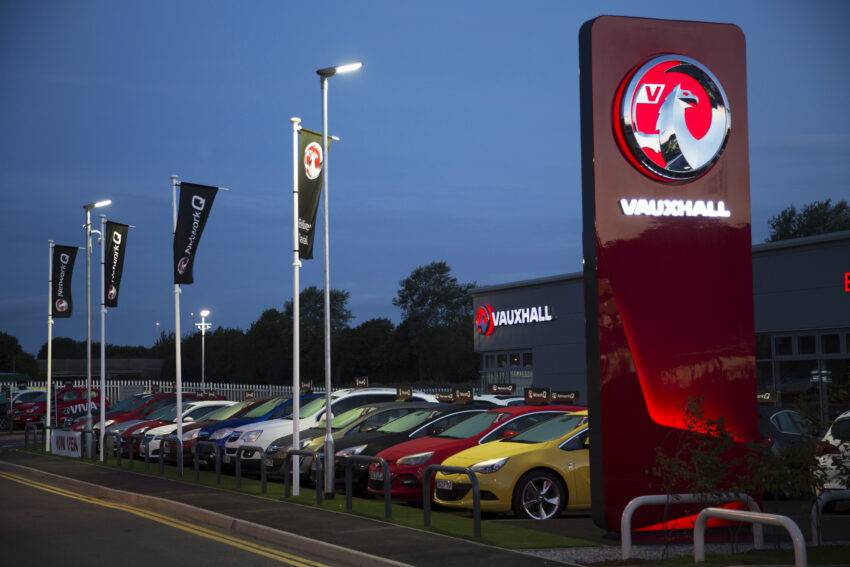In his letter published in The Sun, Taylor highlights a crucial concern: the delay in the transition to electric vehicles following the postponement of the ban on new petrol and diesel cars until 2035. Despite government mandates mandating increasing quotas for electric car sales , from one in five from five this year to four in five in 2030, Taylor underlines a stagnation in consumer adoption.
Taylor recognizes the government's commitment to zero-emissions driving and emphasizes the need for collective action. He points to the lack of incentives stifling private sales of electric vehicles, meaning Britain now lags behind its European counterparts in sustainable driving.
Dear Rishi,
I write on behalf of millions of British motorists. The buyer of a family car. The little car driver.
I have to be honest: last week's Budget was disappointing for them and for the rise of electric vehicles.
You have rightly mapped out the path to zero-emission driving, something that Vauxhall fully supports.
The problem is that we can't do it alone. The new car market reflects that.
A lack of incentives is stifling private sales of electric vehicles.
Continued inaction risks a 'them and us'. Between those who can afford it or, such as company car drivers, are encouraged to do so, and those who cannot.
There is a risk that the country will fall behind the rest of Europe in the transition to cleaner driving.
The simple truth is that electric vehicles are currently more expensive to produce and therefore more expensive to buy.
Combined with the cost of living crisis and inflationary pressures, many people who drive popular small and family cars cannot afford to make the switch.
That's a problem if within just over four years 52 percent of all cars sold in Britain are to be electric, 80 percent by 2030 and 100 percent by 2035.
The market is driven by commercial vehicle and business owners who benefit from very strong tax incentives to buy electric.
We fully support helping people do the right thing.
But the question to ask is whether it is right to still support someone with tens of thousands of tax savings to buy a £100,000 luxury electric car, while the average private buyer gets nothing?
Imagine if these incentives were distributed differently and used to support sales of small and electric family cars to private buyers?
The more affordable the electric cars we sell today means even more Brits will be able to buy used versions tomorrow. That is how it works.
Like I said, we're doing our part. And a little.
We work hard to make electric cars as affordable as possible.
The new Corsa Electric YES Edition is one of the most affordable five-door electric cars in Britain.
There are generous finance offers across the range. Plus, we're offering free charging for a year at Tesco locations nationwide.
We give people choice. By the end of this year we will have an electric version of every car and van in our range.
By 2030 we will halve our carbon footprint and reach net zero by 2038.
We're also proud to help UK businesses go green by supplying electric vans from our factories in Ellesmere Port and Luton.
Our electricstreets.co.uk campaign is supporting the 40 percent of Brits who don't have a driveway to charge at home.
Together with our partners, we help municipalities install street chargers where people want them, regardless of what car you drive.
So, what will make the difference and bring back the spark in the transition to electric cars?
Make the switch financially as obvious for a private driver as it is for a company driver (as in many other European countries) and reduce the VAT on electric cars to ten percent.
This would immediately save around £3,000 on a small electric car, such as the Corsa, and at least £4,000 on a family electric car, such as the Astra.
Make charging costs fairer: if you drive and charge at home, you pay five percent VAT on electricity.
If you can only charge in public, then it is 20 percent. That's wrong.
We need to cut the red tape that is slowing municipalities and businesses in their efforts to install even more chargers, even faster.
Things like faster building permits and access to the electricity grid. The sooner people see more chargers, the sooner they will switch with more confidence.
Everything is there to do it. You can see that we are doing our part.
With a little rethinking of some of your policies, I know we can get Britain back on track towards cleaner driving.
Yours faithfully,
James Taylor
Director Opel
#Dear #Rishi #EVs #expensive #Brits #start #buying #Opel #boss


